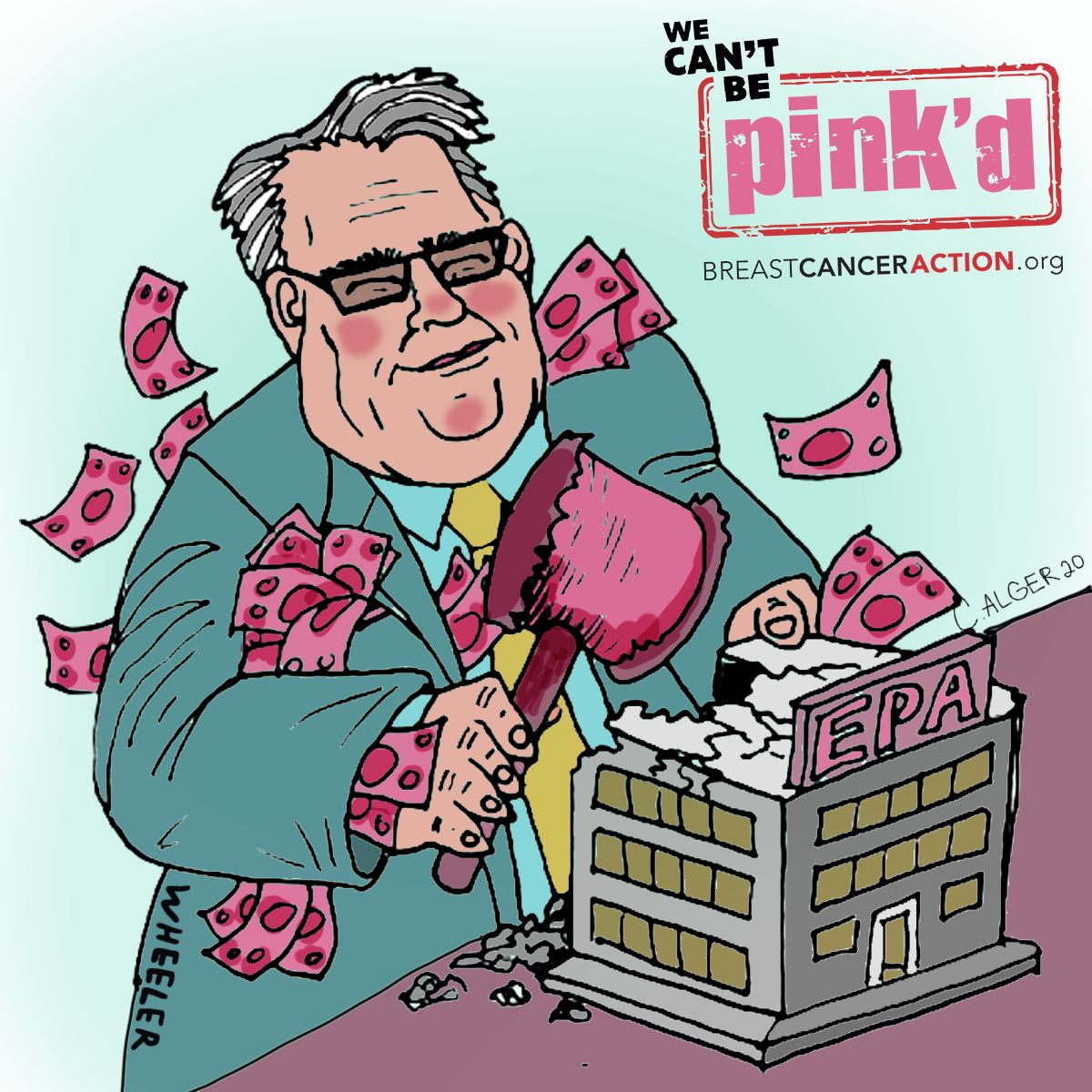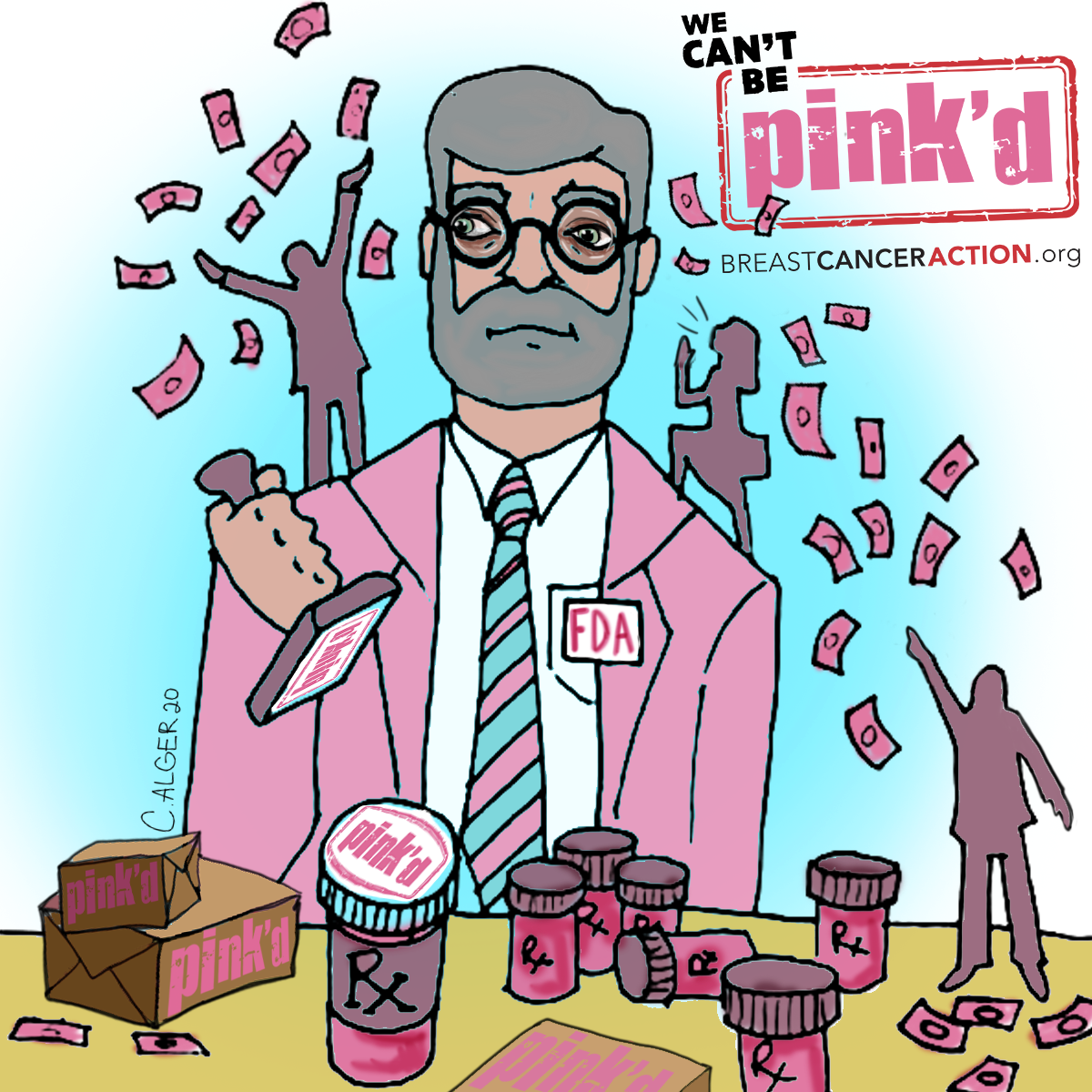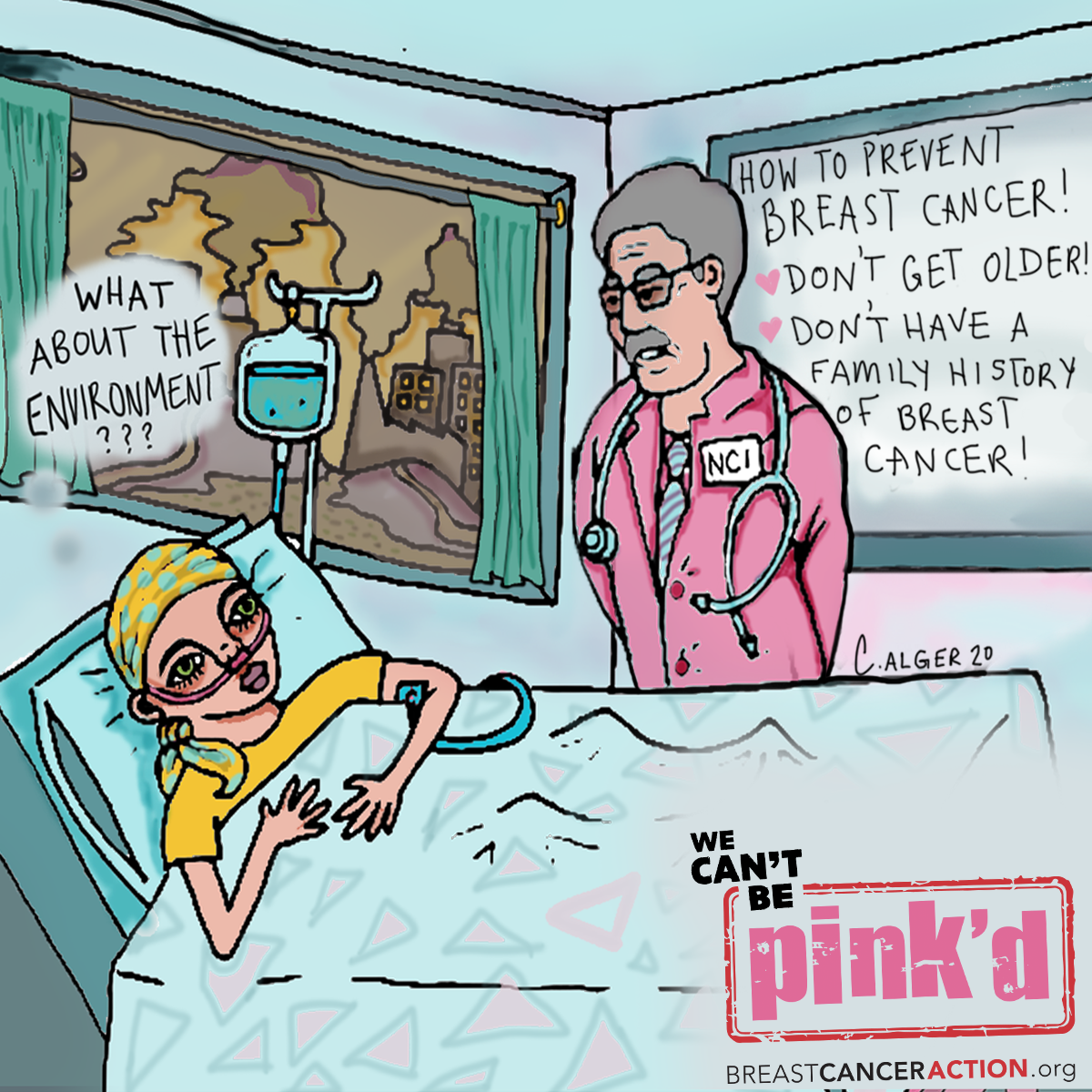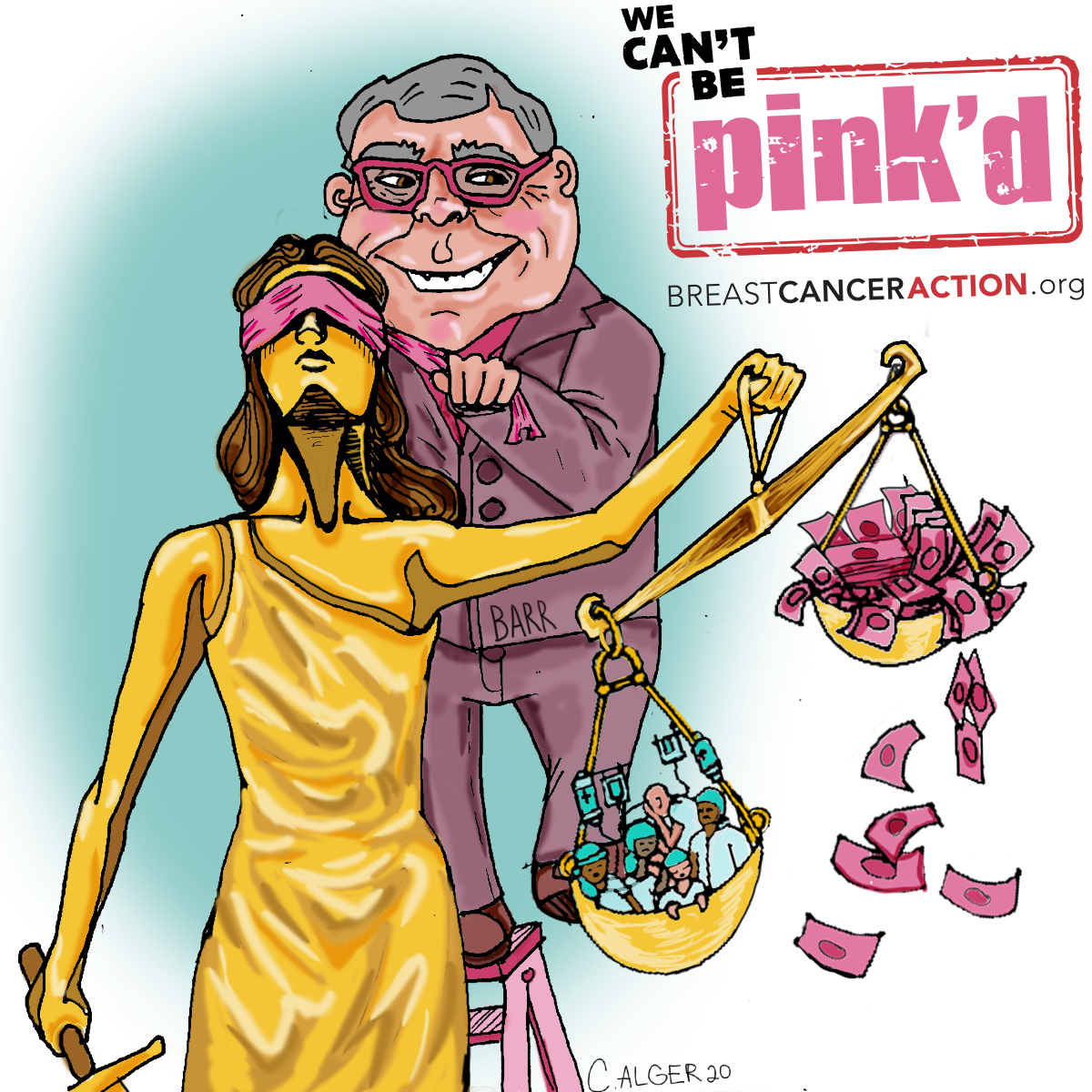By Marj Plumb, Interim Executive Director
This has been a Think Before You Pink® campaign unlike any other. We’ve never run a campaign this big before, with four distinct targets. And there’s still time to participate – all four actions are linked below!
On October 1st, the Trump Administration released a Presidential Proclamation declaring October to be Breast Cancer Awareness Month, and released a photo of the White House lit up with pink lighting. This does nothing to address and end breast cancer.
By taking action in the We Can’t Be Pink’d campaign, you’ve helped connect the dots between the Trump administration’s lack of leadership in addressing the breast cancer crisis, and the changes we are demanding from the Environmental Protection Agency (EPA), the Food and Drug Administration (FDA), the National Cancer Institute (NCI), and the Department of Justice (DOJ).
Calling out how federal-level policy affects the day-to-day lives of people living with and at risk of breast cancer is not easy, but our community has never been afraid to stand up and say women’s health will not be sidelined. We know what patients and families facing breast cancer need, and we will demand it from our government, advocacy organizations, and corporations running awareness-based campaigns.
 Under the Trump administration, the EPA has been decimated, and environmental regulation rollbacks have been devastating. This blatant disregard for public health increases women’s exposures to known and suspected carcinogens, increasing our risk for breast cancer. Send an email or a tweet to EPA Administrator Andrew Wheeler, demanding no more rollbacks. Act Now!
Under the Trump administration, the EPA has been decimated, and environmental regulation rollbacks have been devastating. This blatant disregard for public health increases women’s exposures to known and suspected carcinogens, increasing our risk for breast cancer. Send an email or a tweet to EPA Administrator Andrew Wheeler, demanding no more rollbacks. Act Now!
 Right now, the FDA is under extreme pressure from the administration to rush approvals to market. This new approach to the approval process could be precedent-setting, further lowering their already low standards used to assess safety and efficacy of future breast cancer drugs, treatments, and devices, including breast implants. The FDA’s recently released breast implant labeling guidance is weak, and instead of being mandatory, is simply recommended. Sign our petition to tell the FDA to do more when it comes to protecting our health.
Right now, the FDA is under extreme pressure from the administration to rush approvals to market. This new approach to the approval process could be precedent-setting, further lowering their already low standards used to assess safety and efficacy of future breast cancer drugs, treatments, and devices, including breast implants. The FDA’s recently released breast implant labeling guidance is weak, and instead of being mandatory, is simply recommended. Sign our petition to tell the FDA to do more when it comes to protecting our health.
 The relationship between the administration and the NCI is more complex than the Trump administration simply handing down bad policy. It is about a lack of leadership in addressing the breast cancer crisis. Federal health agencies take their direction from the priorities of the administration, and when an administration deprioritizes science and neglects breast cancer, it gives permission for agencies to do the same. The NCI’s failure to be upfront about exposure to environmental toxins and their link to breast cancer is irresponsible and misleading, and sets weakened criteria for other cancer organizations, clinicians, and policymakers. Take action and tell the NCI to be clear on the environmental risk factors.
The relationship between the administration and the NCI is more complex than the Trump administration simply handing down bad policy. It is about a lack of leadership in addressing the breast cancer crisis. Federal health agencies take their direction from the priorities of the administration, and when an administration deprioritizes science and neglects breast cancer, it gives permission for agencies to do the same. The NCI’s failure to be upfront about exposure to environmental toxins and their link to breast cancer is irresponsible and misleading, and sets weakened criteria for other cancer organizations, clinicians, and policymakers. Take action and tell the NCI to be clear on the environmental risk factors.
 The impact of the administration on the DOJ is readily apparent: the administration is directing the Attorney General to abolish and replace the Affordable Care Act (ACA). If the administration is successful in repealing the ACA, the impact would be devastating for the 29 million people who could lose coverage, and the nearly 54 million Americans with pre-existing conditions, including breast cancer. Share your story and send an email to Attorney General William Barr now, telling him we need access to quality affordable healthcare for everyone!
The impact of the administration on the DOJ is readily apparent: the administration is directing the Attorney General to abolish and replace the Affordable Care Act (ACA). If the administration is successful in repealing the ACA, the impact would be devastating for the 29 million people who could lose coverage, and the nearly 54 million Americans with pre-existing conditions, including breast cancer. Share your story and send an email to Attorney General William Barr now, telling him we need access to quality affordable healthcare for everyone!
Together we’ve called out these pink policies and the impact on people living with and at risk of breast cancer. Pink policies are policies, or a lack of policies, that fail to protect people living with this disease and increase breast cancer risk for all people, especially for women, people of color, and low-income people.
Breast cancer is a social justice issue and public health crisis that urgently needs to be addressed. We need leaders who will implement policies that ensure fewer women develop breast cancer, and that no community bears a disproportionate burden of diagnosis or death from this disease.
Now is the time. Join us in telling the leaders of the administration and these national agencies that We Can’t Be Pink’d: Say No to Pink Policies!